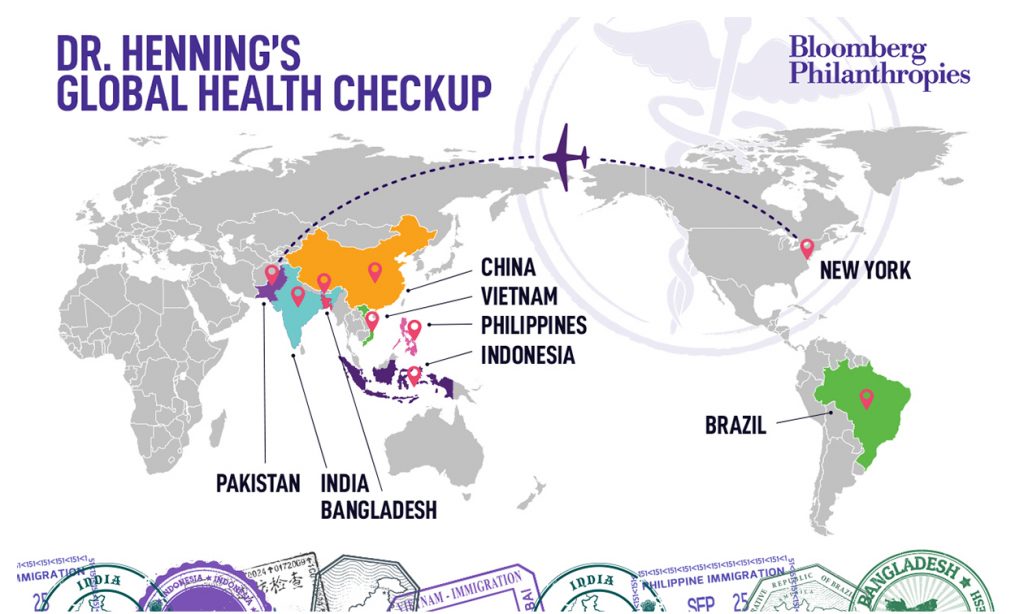Global Health Checkup: Optimism for Pakistan’s Continued Success in Reducing Tobacco Use

By Dr. Kelly Henning, Public Health program lead at Bloomberg Philanthropies
I was fortunate to meet in Dubai with our partners from across the globe working to combat the tobacco epidemic in Pakistan — a country where more than 160,000 people die every year from tobacco-related diseases.
In fact, in Pakistan, nearly 24 million adults currently use tobacco. Thirty-two percent of men smoke, and even though just 6 percent of women use tobacco, that still represents 3.5 million adult females in Pakistan. And it’s not just adults — a shocking 125,000 children (age 10-14) use tobacco each day.
But despite those jarring statistics, I came away from that meeting with our partners — the government of Pakistan, World Health Organization (WHO), The Union, Vital Strategies, Campaign for Tobacco Free Kids, and University of Illinois — with a renewed sense of optimism.
The Pakistan meetings made one thing very apparent — local and international partner groups work very closely together, share strategic aims and communicate very effectively. There is a strong sense of comradery and this really comes through in the technical discussions about the work. It was so great to see true collaboration in action!
In fact, during the past 10 years there has been real progress in moving forward with best practice tobacco control policies. A smoke-free law passed in 2002, prohibiting smoking in places like restaurants and government facilities. With nearly one in five adults using tobacco, and seven in 10 adult who work indoors reporting exposure to secondhand smoke, such tobacco control policies are essential in Pakistan.
What Success Looks Like
But, we have a lot more work to do. The high rate of adults exposed to smoke in the workplace shows that more enforcement of smoke-free laws is badly needed.
Starting in June 2019, health warnings on tobacco products will cover 60 percent of packaging (up from 50 percent).
The next major step will be to increase prices AND taxes on tobacco products. Taxes from tobacco sales could be used for public health programs, such as creating a national hotline to assist those who want to quit smoking and producing PSAs (like this one) that appear on television warning against the dangers of tobacco use.
I’m so encouraged by how much Pakistan has moved forward on policy to combat the tobacco epidemic. President Arif Alvi has expressed his support for preventative healthcare to address chronic sickness and disease, and his position makes all of us at Bloomberg Philanthropies optimistic that Pakistan will continue to decrease tobacco use and save more lives in the process.